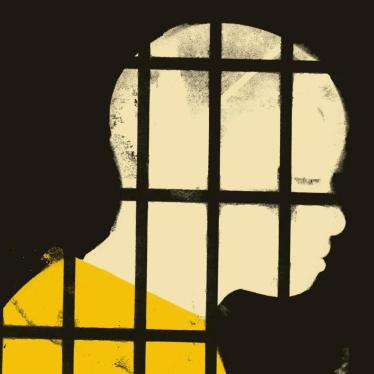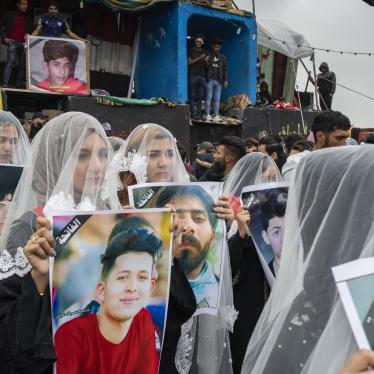Bahrain has a well-deserved reputation for torture, but now the authorities are threatening action against people who discuss it. Bahrain’s official news agency on April 14, 2104, reported that the interior minister “defied those alleging torture to corroborate those claims” and asserted that “those who make false allegations about torture will be challenged by law.”
Earlier that day, Criminal Investigation Directorate (CID) officers spent four hours questioning Sayed Hadi Almosawi, the head of the liberties and human rights department of Wefaq, Bahrain’s main opposition group, after he discussed persistent allegations of torture at CID facilities at an April 9 news conference. Yesterday, Bahrain’s public prosecutor interviewed Almosawi for another two hours. Officials released him without charge, but accused him of defaming the Interior Ministry simply by repeating allegations of torture.
Bahrain’s reputation for torture predates even the serious violations of human rights during and since the 2011 uprising. Four of the five people whose deaths the Bahrain Independent Commission of Inquiry (BICI) attributed to torture in its November 2011 report died in Interior Ministry custody.
Thorough, independent, and impartial investigations into allegations of torture would distinguish between false and genuine claims. But Bahrain has carried out no such investigations. And there is no evidence that post-BICI initiatives such as the appointment of an Interior Ministry ombudsman, and creation of a Special Investigations Unit and a Commission on the Rights of Prisoners and Detainees have been effective in stopping torture and holding torturers criminally accountable for their actions.
These developments arise almost exactly a year after Bahrain effectively cancelled the country visit of the special rapporteur on human rights, Juan Mendez. In short, Bahrain’s reputation for torture is a problem all of its own making, and threatening those who report allegations of torture will only make things worse.









